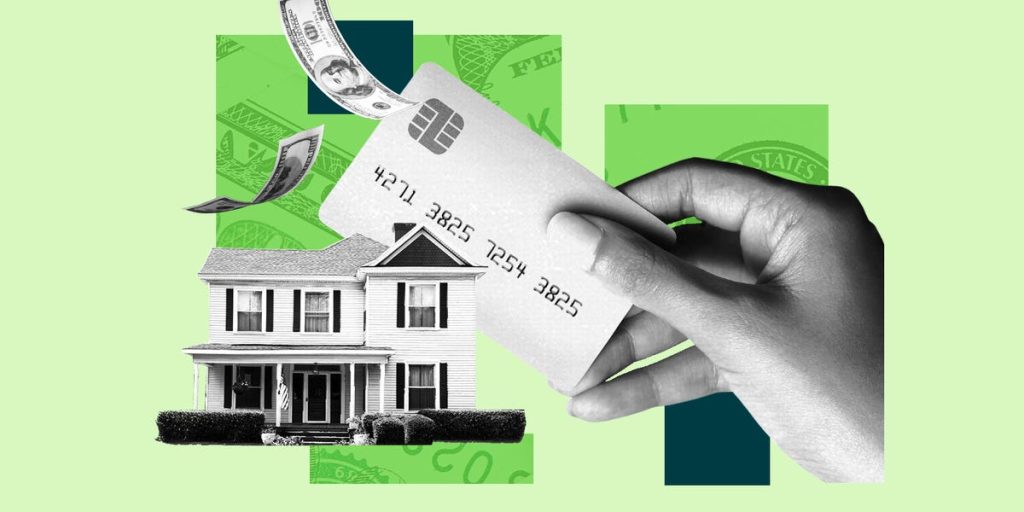Rising Mortgage Delinquencies Among First-Time Homebuyers: A Growing Concern
Introduction: The State of Mortgage Delinquencies in 2024
The U.S. housing market is facing a new wave of challenges, particularly among first-time homebuyers, as mortgage delinquencies continue to rise. According to data from the Mortgage Bankers Association (MBA), delinquency rates for loans popular with first-time buyers, such as Federal Housing Administration (FHA) and Department of Veterans Affairs (VA) loans, have increased at an alarming pace compared to conventional mortgages. This trend is raising concerns about the financial stability of these borrowers, who are often more vulnerable to economic headwinds. The MBA’s fourth-quarter data reveals that the seriously delinquent rate for FHA loans jumped by 70 basis points year-over-year, while VA loans saw a 57-basis-point increase. In contrast, conventional mortgages experienced only a 2-basis-point rise, highlighting the disproportionate impact on government-backed loans.
The Rise of FHA and VA Loan Delinquencies
FHA loans are one of the most accessible mortgage options for first-time homebuyers, offering lower down payment requirements and more lenient credit score standards. Similarly, VA loans cater to active-duty military personnel, veterans, and their families, providing favorable terms such as no down payment requirements. However, these loans are now showing higher delinquency rates compared to conventional mortgages. The Intercontinental Exchange (ICE) reports that FHA delinquencies are now 2.5 percentage points above pre-pandemic levels, while the national delinquency rate remains 22 basis points below its pre-pandemic levels. This suggests that borrowers relying on FHA and VA loans are struggling more than others, potentially signaling broader challenges in the mortgage market.
The Perfect Storm of Economic Headwinds
First-time homebuyers are facing a combination of economic challenges that are making it difficult to keep up with mortgage payments. Inflation, rising debt burdens, falling personal savings rates, and increasing costs of homeownership are all contributing factors. Marina Walsh, MBA’s vice president of industry analysis, noted that natural disasters and rising taxes and insurance payments have further exacerbated the strain on these borrowers. Additionally, mortgage payments have surged in recent years, with the 30-year fixed mortgage rate climbing to 6.89%—well above the 3% levels seen during the COVID-19 pandemic. These factors have made homeownership less affordable and more unsustainable for many first-time buyers.
First-Time Buyers Increasingly Sidelined
The challenges facing first-time homebuyers are evident in their declining participation in the housing market. According to the National Association of Realtors’ 2024 report, first-time buyers accounted for only 24% of home sales between July 2023 and June 2024—the lowest level ever recorded in the survey. This decline reflects the growing obstacles these buyers face, including rising mortgage rates, increased home prices, and tighter lending standards. As a result, many first-time buyers are being priced out of the market or forced to delay their homeownership goals. This trend not only impacts individual buyers but also has broader implications for the housing market and the economy as a whole.
Delinquencies as a Canary in the Coal Mine
The rising delinquency rates for FHA and VA loans could serve as early warning signs for broader mortgage market performance. Experts warn that these loans, which cater to lower-income and credit-challenged borrowers, are often more sensitive to economic downturns. ICE has highlighted that these delinquencies are likely to become a key topic of discussion in 2025, as their impact on the mortgage market continues to grow. If left unchecked, these trends could signal deeper systemic issues, particularly as economic conditions remain uncertain. Policymakers and industry leaders will need to closely monitor these developments and consider measures to support vulnerable borrowers.
Looking Ahead: Implications for 2025 and Beyond
As the mortgage market navigates these challenges, the focus will likely shift to finding solutions to support first-time homebuyers and stabilize delinquency rates. Potential strategies could include policy changes to enhance affordability, expanded financial assistance programs, and more robust credit counseling services. However, without intervention, the rising delinquency rates for FHA and VA loans could have long-term consequences, both for individual homeowners and the broader housing market. The coming year will be critical in determining whether these trends can be reversed or if they will persist as a new normal in the post-pandemic economy.












